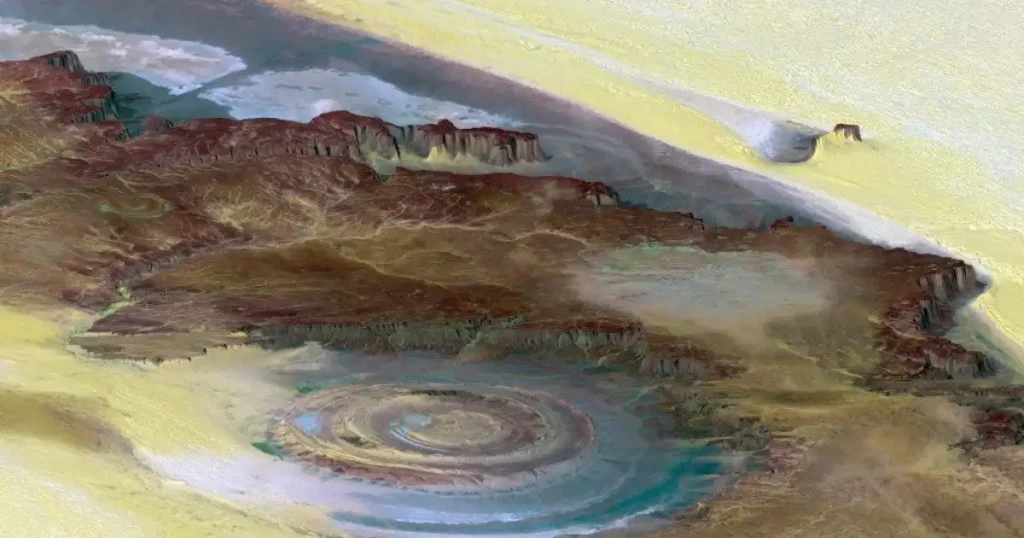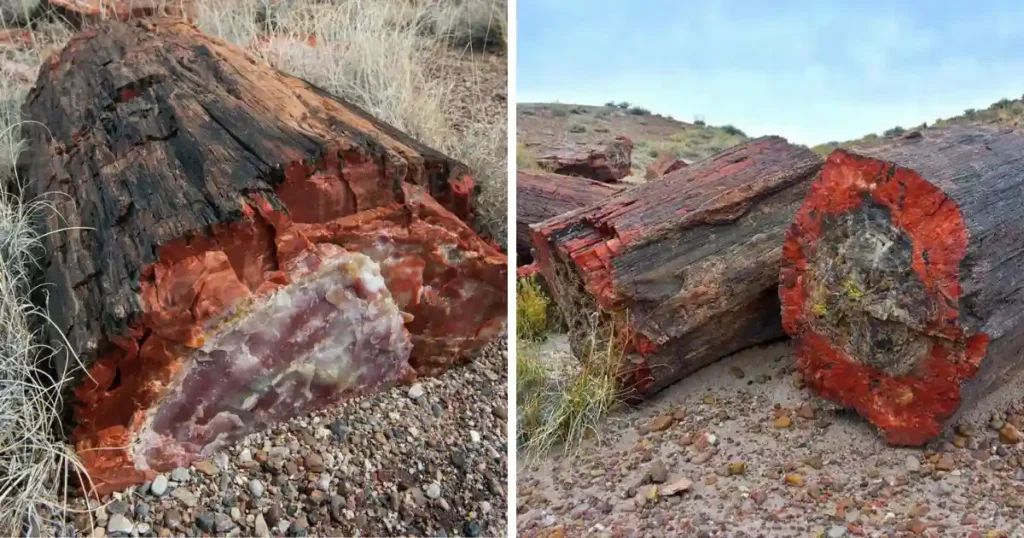Step into the past and journey alongside ancient inhabitants as we explore the remarkable fossilized footprints that tell the story of a unique interplay between humans and giant ground sloths during the Ice Age.
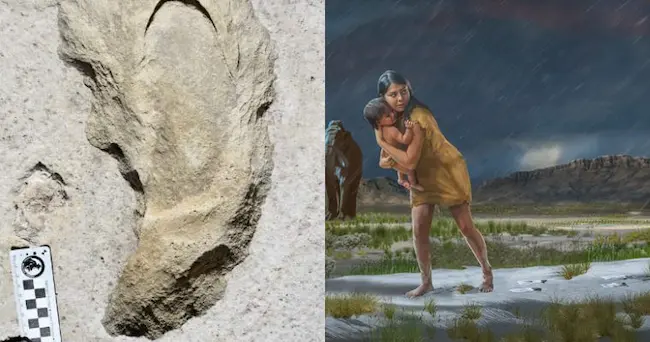
Join us on an exciting adventure through time, uncovering the mysteries that these footprints reveal.
Introduction: Footprints in Stone, Echoes of an Era
Imagine standing on the same ground that our distant ancestors once walked upon, where colossal creatures roamed and humans forged their path through a vastly different world. Fossilized footprints serve as portals to the past, allowing us to witness the interactions and movements of creatures that lived millennia ago.
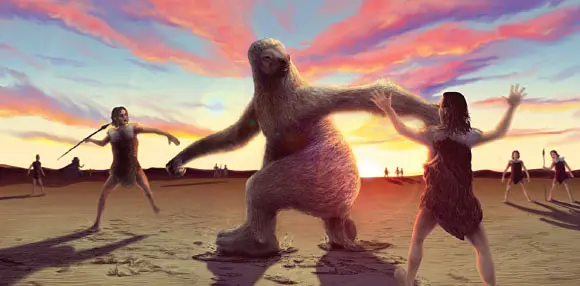
Giant Ground Sloths: A Glimpse into the Ancient World
Giant ground sloths, behemoths that once roamed the landscapes of the Americas, are among the most iconic creatures of the Ice Age. With their imposing size and distinctively shaped feet, these herbivores left their mark on the earth, leaving behind a trail of clues for modern scientists to decipher.
Humans and Sloths: An Unexpected Connection
Recent discoveries of fossilized footprints have shed light on an unexpected connection between humans and giant ground sloths. These tracks reveal instances where the paths of these two vastly different species crossed, offering a glimpse into a prehistoric world where survival, predation, and coexistence were constant challenges.
The Dance of Interactions: Analyzing Footprints
By carefully studying the size, depth, and arrangement of these ancient footprints, researchers have been able to piece together narratives of interactions between humans and giant ground sloths. These insights open windows into the behavior, movement patterns, and perhaps even social dynamics of these creatures.
A Glimpse into Daily Life: Tracking Behaviors
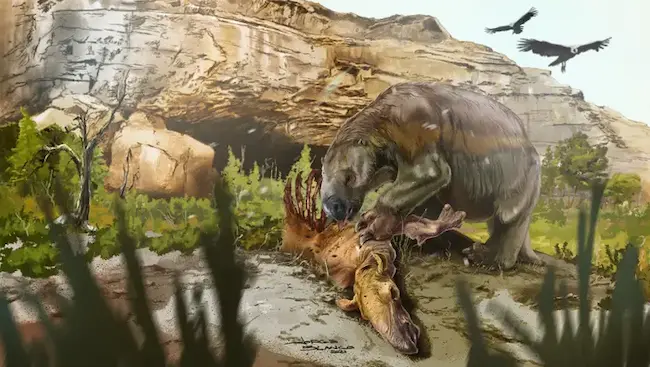
From the analysis of fossilized footprints, scientists have been able to deduce behaviors such as the hunting strategies of early humans, as well as the reactions of giant ground sloths to potential threats. The footprints offer snapshots of moments frozen in time, unveiling a dynamic and complex ecosystem.
Preserving the Past: Challenges and Conservation
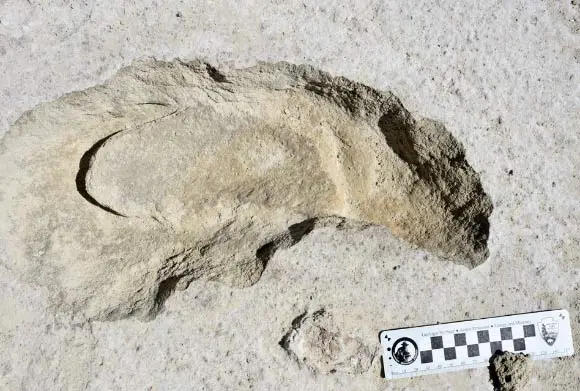
As these delicate footprints emerge from the sands of time, preserving them for future generations becomes a paramount concern. The intricate dance between scientific exploration and conservation aims to strike a balance that ensures the insights gained from these ancient impressions are not lost.
Reconstructing Prehistoric Worlds: A Multidisciplinary Approach
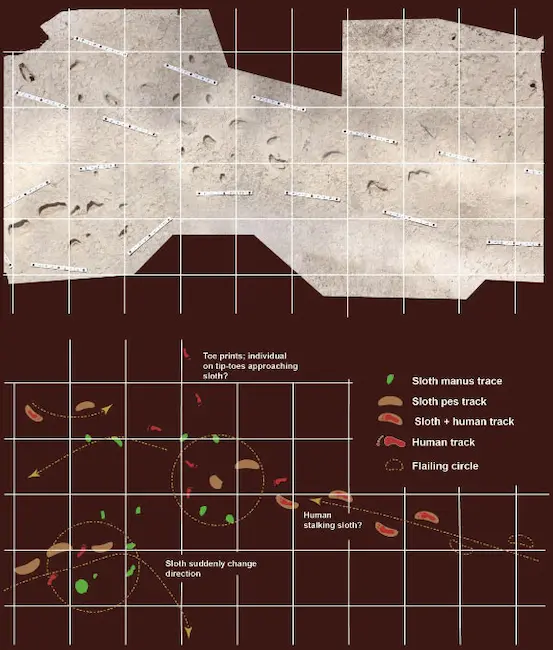
Unraveling the stories within fossilized footprints requires a collaborative effort that spans various scientific disciplines. From paleontology and anthropology to geology and technology, these footprints challenge researchers to integrate knowledge to paint a comprehensive picture of our distant past.
Unlocking Human-Sloth Dynamics: Implications and Insights
The revelations from fossilized footprints extend beyond mere historical curiosity. They offer a unique lens through which we can better understand the interactions between different species, the adaptations of creatures to changing environments, and the delicate balance of prehistoric ecosystems.
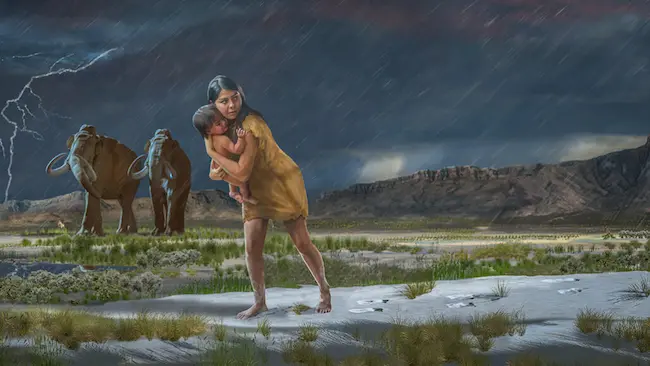
Conclusion: Footprints as Portals to Time
The fossilized footprints of humans and giant ground sloths serve as tangible connections to a time long gone. Through these imprints, we are granted a glimpse into the lives, struggles, and coexistence of creatures that once inhabited our planet. As technology advances and new discoveries are made, the stories etched in these ancient footsteps will continue to enrich our understanding of the intricate tapestry of life on Earth.
FAQs
FAQ 1: What are fossilized footprints?
Fossilized footprints are impressions left behind by ancient creatures on surfaces such as mud, sand, or soft sediment, which have subsequently solidified over time to form preserved traces of their movements.
FAQ 2: How are fossilized footprints studied?
Researchers study fossilized footprints by analyzing their size, shape, depth, and arrangement. Modern technology, such as 3D scanning and imaging, aids in creating detailed records and digital reconstructions.
FAQ 3: Why are fossilized footprints important?
Fossilized footprints provide unique insights into the behaviors, interactions, and ecology of ancient creatures. They offer glimpses into the lives of creatures that may not have left behind more traditional forms of fossil evidence.
FAQ 4: Where have human and giant ground sloth footprints been found?
Fossilized footprints of humans and giant ground sloths have been found in various parts of the Americas, including North and South America.
FAQ 5: What can we learn from the interactions between humans and giant ground sloths?
The interactions between humans and giant ground sloths revealed through fossilized footprints offer insights into the behaviors, movement patterns, and potential relationships between these two species during the Ice Age.
